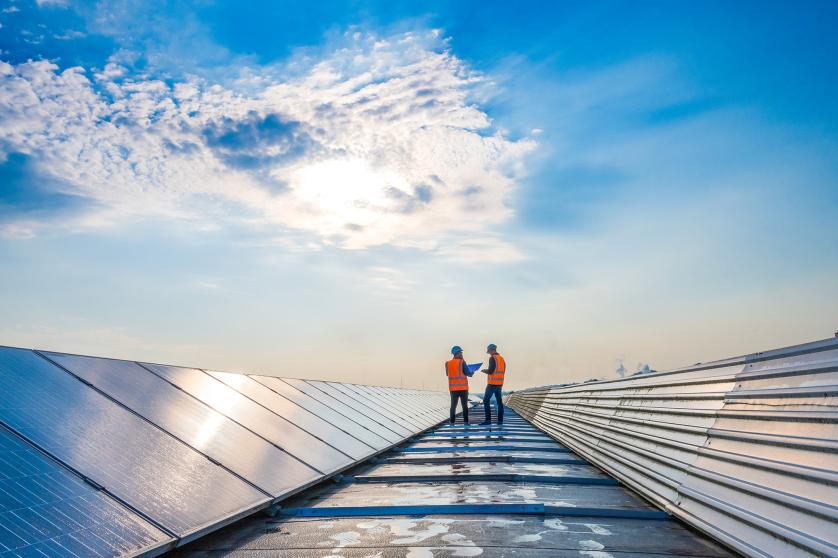It’s time for Europe First

Every crisis holds the spark of reinvention. Faced with increasingly hostile global powers, The European Union is finally stepping out of its comfort zone to counter decline and regain influence. The Clean Industrial Deal will be a key asset in this long battle. Far from being a mere semantic evolution of the Green Deal, this new programme paves the way for a true Copernican revolution of the EU, placing industrial competitiveness at the heart of its policies for the first time. This paradigm shift is a welcome change driven by our political group. For years, the EPP Group has championed the need to re-industrialise Europe and has warned against out-of-touch decisions which, on the valid pretext of protecting the environment, end up suffocating our productive forces.
The Clean Industrial Deal will be a key asset in this long battle. Far from being a mere semantic evolution of the Green Deal, this new programme paves the way for a true Copernican revolution of the EU, placing industrial competitiveness at the heart of its policies for the first time.
The EPP Group is the workers' party. Being in direct contact with entrepreneurs, we make the right decisions. Just a few days ago in Brussels, we gathered several key representatives of energy-intensive industries, including BASF, ArcelorMittal and Repsol. They all told us the same thing: "We are leading the transition to low-carbon solutions, but we lack support. Energy prices are unaffordable and red tape is choking us".
Our response will rise to the challenge.
The first step is to provide the necessary support. Restoring dialogue with industry must be the guiding principle of our actions. We must listen to stakeholders before proposing legislation. The cement, steel, and chemical industries, for example, cannot be subjected to a 'one-size-fits-all' approach. Each sector faces specific challenges that require tailored legislation. This is a key element—common sense, even— that could have prevented certain disasters, such as the ban on internal combustion engines, which is detrimental to the automotive sector. In this context, while we welcome the Commission’s announcements, we expect clarity on its 2040 climate targets. Otherwise, industries cannot plan their transition investments. The same applies to introducing a 'European preference' in public and private procurement. This is a concrete step that will favour clean European production and guarantee markets for low-carbon products made in the EU. However, we must be careful to include all sectors and not leave some behind. Markets are diverse, and so must be the solutions. Economic considerations must be at the heart of our actions - there is no such thing as a free lunch.
Secondly, tackling energy challenges. European industry pays significantly more for energy than other major players. Our goal is clear: lowering energy costs while implementing reforms to prevent future price shocks, such as the 2022 energy crisis. To achieve this, we must tackle energy prices, network costs, levies, and taxes. It is also high time to fully implement the reform of the Electricity Market Design and complete the revision of the Energy Taxation Directive. We also support developing long-term supply contracts between industries and energy providers, backed by the European Investment Bank, to protect against market fluctuations.
European industry pays significantly more for energy than other major players. Our goal is clear: lowering energy costs while implementing reforms to prevent future price shocks, such as the 2022 energy crisis.
However, we must be realistic: energy prices will not drop significantly overnight. Reducing costs requires sustained efforts over several years at all levels, from the EU to local authorities. While short-term market interventions may seem like a quick fix, the Fata Morgana they promise will not offer a long-term solution. The EPP Group will stand firmly against the interventions, called for by left-wing and far-right parties. Instead, the only realistic short-term relief measure for businesses and citizens is to reduce energy taxes, which are excessively high across Europe. Member States must take responsibility for this.
Finally, regarding bureaucracy. The EPP Group has been fighting against this burden for years, as it suffocates our entrepreneurs and undermines our competitiveness. We welcome the Commission’s paradigm shift and its announcements within the framework of a major regulatory simplification initiative (Omnibus), which aims to save €6 billion in direct costs. Whether it's non-financial reporting, simplifying the Carbon Border Adjustment Mechanism (CBAM), or relaxing environmental reporting criteria, we urgently need rationalisation at all levels. Additionally, we expect the Commission to take strong action on hydrogen development rules. The EU's capacity for innovation in this area has been lost in its own regulatory maze... The Commission must urgently revise hydrogen regulations, including the Delegated Act on Renewable Fuels of Non-Biological Origin, which are currently too detailed and restrictive, hindering the ramp-up of hydrogen production in Europe. The forthcoming Delegated Act on Low-Carbon Hydrogen must deliver on the Commission’s promise of true technological neutrality and a rational approach.
Europe is at a crossroads. To stop the decline and regain leadership, we must unleash the potential of our businesses, eliminate regulations that suffocate production and guarantee stable and affordable energy. This fight will not be easy, and the necessary funding will likely exceed the €100 billion already announced by the Commission. Nevertheless, by driving the Clean Industrial Deal, the EPP Group has shown that another path is possible - which combines competitiveness with the transition to low-carbon solutions. It’s time for Europe First.
Note to editors
The EPP Group is the largest political group in the European Parliament with 188 Members from all EU Member States
MEP Contacts

Press contacts

Press officer for Budget, Structural Policies and for France
Other related content
6 / 54






